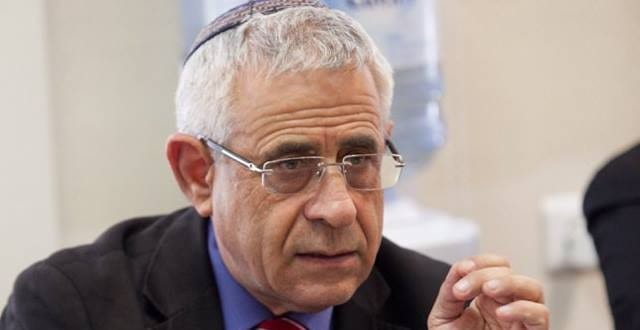Israel is being brought to a standstill due to mass protests over the judicial reform proposed by Prime Minister Netanyahu’s coalition government. Despite the stated purpose of the protests, they have taken on other left-wing positions with Palestinian flags appearing and a strong anti-Netanyahu element. Yair Lapid, the former Prime Minister and current head of the opposition, is fanning the flames of the protests.
Dr. Mordechai Kedar, a senior lecturer in the Department of Arabic at Bar-Ilan University, has a strong take on the protests, suggesting they pose an existential threat to Israeli democracy.

“The left-wing is trying to perpetuate its rule over the country through the judicial system,” Dr. Kedar told Israel365 News. “That is the essence of what is happening here. They are grabbing at the last bit of power they have.”
Indeed, Meretz, a left-wing extremist party, was formed in 1992 and was at its peak in 1996 when it had 12 seats in the Knesset. They failed to pass the threshold in 2020 and no longer have representation in the Knesset. Similarly, the left-wing labor party formed in 1968 is associated with European socialists. It was the dominant political party until 1977. The party has been in decline and garnered four seats in the last election.
“Even though the left wing has lost the elections time and again, they still hold control through the court system,” Dr. Kedar said. “The judicial system has legal advisors throughout the Knesset who are the people who have a huge influence on the decisions. This has no parallel in the US judicial system which separates the judicial from the legislative. There is actually no point in voting for the Knesset since they do not make the decisions. The supreme court does not act as a part of the judicial branch. It is actually a super legislator. It is self-appointing and supersedes the legislative at every turn.”
Dr. Kedar said that this outsized judicial power was instilled within the judicial system by Aharon Barak in the 1990s. Barak was an Israeli lawyer and jurist who served as President of the Supreme Court of Israel from 1995 to 2006. Prior to this, Barak served as a Justice of the Supreme Court of Israel from 1978 to 1995, and before this as Attorney General of Israel from 1975 to 1978. In the course of his service on the Supreme Court Barak greatly expanded the range of issues with which the court dealt. During his time as President of the Supreme Court, Barak advanced a judicial activist approach, whereby the court was not required to limit itself to judicial interpretation, but rather was permitted to fill the gaps in the law through judicial legislation at common law. This approach was highly controversial and was met with much opposition, including from some left-wing politicians.
“Those who oppose the proposed reforms claim that the Supreme Court has struck down 22 different laws passed by the Knesset on the grounds that the laws contradict Israel’s Basic Laws,” Dr. Kedar said. “While this is technically true, there were thousands of laws that were never brought up in the Knesset because they never stood a chance with the Supreme Court holding all the power and it was clear they would not approve those laws,” Dr. Kedar said, adding, “And the Supreme court clones itself. Without a major action, judicial activism by the Supreme Court would never end.”
Dr. Kedar suggested that there will be a solution.
“There will have to be some kind of compromise,” Dr. Kedar said. “Both sides will walk away disappointed. They must accept this because if there is no compromise, there will be no state.”
“My concern is that the left wing doesn’t care. If they don’t feel that this country is working according to their dictates, they can fly away to a different country where their form of politics is popular. They love the country only so long as it works according to their dictates.”
Dr. Kedar saw this as a result of the social divide between the religious Zionists and the secular Zionists.
“Secular Zionism is conditional love,” Dr. Kedar said. “Religious Zionism is entirely unlike secular Zionism. The religious love for Israel is unconditional. Even if the political system is not what they want, they will never leave and never stop loving Israel.”
“When the government decided to dismantle Gush Katif, there were protests. It was the worst possible thing the government could do in the eyes of the religious. But they didn’t call to take the government down. They didn’t bring the country to a total standstill. They didn’t turn to foreign governments to pressure the Prime Minister.”




